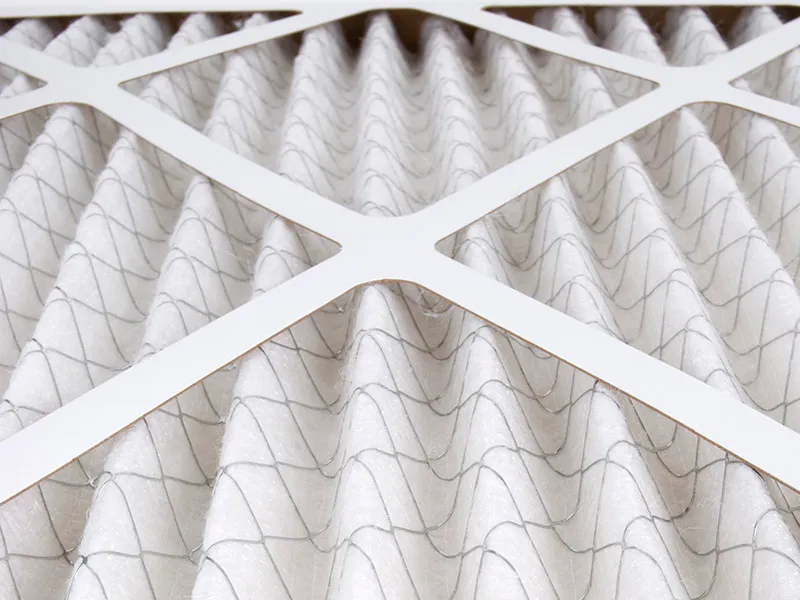Dirty air is a big problem. The World Health Organization estimates that over 6 million people die each year from the combined effects of household air pollution and ambient air pollution. Outdoor air pollution has been an issue for a long time, but people don’t tend to give as much thought to the quality of the air indoors. Indoor air is usually between 2-5 times dirtier than outdoor air, and that number is much higher if you use any sort of solid or liquid fuel to heat your home, like wood or oil. Indoor air is dirty because, for the most part, dust doesn’t have anywhere to go. In recent years, doors have become less drafty and windows have become less leaky. While this is great for electricity bills, all the dust particles that got carried outside by those drafts now remain inside the home. Even with constant washing and vacuuming (and we’re willing to wager that the average American doesn’t vacuum as often as they should), indoor air is still pretty dirty.
It’s counterintuitive, but the smaller the dust particle, the more dangerous it is. Big dust particles get stuck in the nose and throat and eventually get breathed out. Small particles escape these safeguards and end up going into your lungs, where they get absorbed into your blood. That’s bad for you whether the particle was toxic or not, and they sometimes are. What’s worse, a 2016 British study showed that air pollution is ubiquitously bad for everyone. Though unsurprising, that statistic only confirms what people had already suspected: they should be breathing cleaner air. The most effective way to achieve this is with an air filter. Steve’s Heating offers installation of Trane’s CleanEffects™ whole-home air filter. These are much more effective than standalone air filters or purifiers, which only clean the air directly around them. There’s an added bonus in that the Trane filter traps much, much smaller particles than HEPA filters, which are currently the gold standard for filtration. If that’s not enough to convince you, here are some other reasons you should consider purifying your air at home:
Reason 1: you live with a smoker
The first thing you should know about cigarettes and air purifiers is that they do a great job of dealing with the smell of cigarette smoke. The second thing you should know is that air purifiers don’t make cigarette smoke any less dangerous, even though they deal with smoke odor. That’s because the dangerous parts of cigarette smoke are all gaseous pollutants, which air purifiers can’t do anything about—air purifiers can only clean particles from the air, which account for the smell of cigarette smoke. So, keep in mind that air purifiers will make living with a smoker much more pleasant, but they won’t make it healthier. The only way to do that is to make them quit.
Reason 2: You have pets
If you have pets, it’s likely that they are the biggest contributor of dust in your home. Pets not only ensure that your house will be dirtier and require more cleaning, but their dust can also be dangerous to people with asthma, young children, or people with respiratory problems. Even if you don’t have any people in your household who are put in danger by excess dust, it’s still an irritant that can cause a runny nose and scratchy throat.
Reason 3: You have allergies
Excess dust affects people regardless of whether or not they have allergies, but it can be a nightmare for people who do. Dust allergies are most commonly triggered by near-microscopic creatures called dust mites. They are so small that they cannot be seen by the naked eye—just a third of a millimeter—and their waste and dead bodies often float around in the air until they get inhaled or settle into fabric. Many of the people who experience symptoms of allergies in dusty homes are actually allergic to dust mites. Luckily, dust mites are not so small that they can escape Trane’s air purifier, which can pick up particles as small as .3 microns. For scale, that’s .00003 mm.
Reason 4: You just like the idea of breathing healthier air
Maybe you don’t have allergies, a sick baby, or pets. Maybe you just like the idea of breathing cleaner air. And why shouldn’t you? Your home is the one place that is completely yours, so it should be as comfortable and healthy as it can be. Purifying your air will make you feel better and give you the peace of mind you need to be your best self.
By now, you probably know a thing or two about dirty air and why it’s a problem. If you decide you want to take the next step, give Steve’s Heating a call. We’ll even provide a free estimate for installing the filter.


